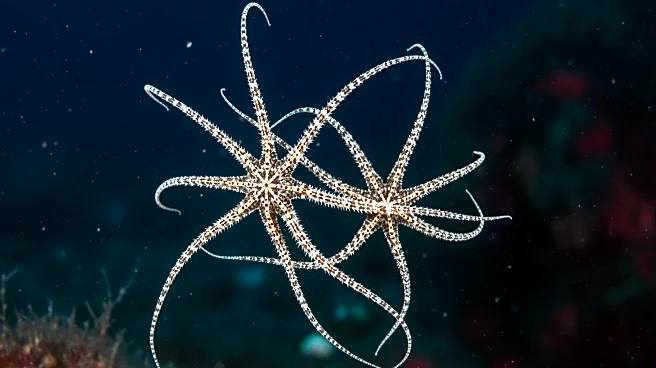What's Happening?
A study on the molecular evolution of brittle stars has identified convergent evolution in protein biogenesis as a key adaptation to deep-sea environments. Researchers examined 416 genes from four brittle star families,
finding consistent positive selection in genes related to protein folding and translation. The study highlights the role of the chaperonin-containing TCP-1 subunit α (CCTα) in adapting to the pressures and cold temperatures of the deep ocean. This gene displays structural and functional adaptations, suggesting that efficient protein biogenesis is crucial for survival in deep-sea conditions.
Why It's Important?
Understanding the molecular mechanisms of deep-sea adaptation is vital for assessing the resilience of marine biodiversity to environmental changes. The study provides insights into how deep-sea organisms have evolved to withstand harsh conditions, which could inform conservation strategies. As human activities increasingly impact ocean ecosystems, knowledge of these adaptations can help predict how marine life might respond to future challenges.
What's Next?
Further research is needed to explore the extent of convergent evolution across different taxa and to identify other genes involved in deep-sea adaptation. The study suggests that adaptation mechanisms to cold and deep-sea environments may be linked, offering new avenues for investigating the resilience of marine species. Continued exploration of molecular evolution in deep-sea organisms will enhance our understanding of their survival strategies.
Beyond the Headlines
The study emphasizes the importance of protein biogenesis in deep-sea adaptation, highlighting potential links between cold-shock proteins and deep-sea survival. This research could lead to broader investigations into how marine organisms cope with environmental stressors, contributing to a deeper understanding of ocean biodiversity.









